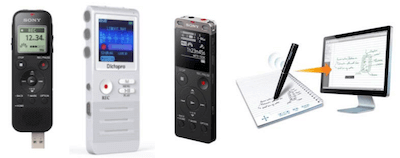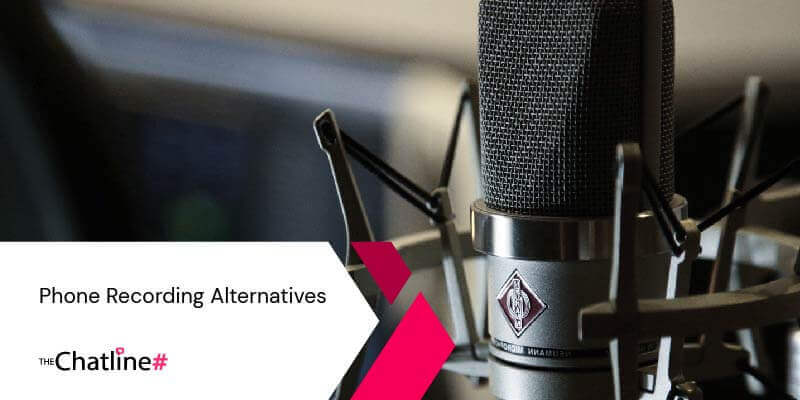There are various reasons why people choose to record their phone conversations. Business executives often record calls for training and quality control purposes, while government officials do so for transparency. In relationships, phone recordings can help clear doubts about possible affairs or infidelity through chat lines, and some specialized organizations create audio recordings for legal reasons.
Whatever your reasons may be for recording your calls, you have several options available. Here are some of them.
Mobile Apps

Let’s start with easiest way to record phone conversations, smartphone apps, which you can find for free on the internet.
One example of a recording app is TapeACall, which has a free version and a paid professional version. The free version lets you record 60 seconds of conversation, while the professional version has no limits but costs $10 for better features. Another option is Google Voice, which is free and compatible with most mobile devices, but is not very user-friendly.
There are many other great recording apps available, and most of them are easy to use. All you have to do is read their description, make sure they’re compatible with your device, and download them. Once you have the app, you can sync it with your device and start recording calls whenever you need to.
Hardware Recording Devices

If you prefer the traditional way, you can use special recording devices to record phone conversations. Most phones have built-in recorders, but you can still find equipment that’s designed specifically for recording phone conversations.
The price of these voice recorders can range from around $12 to $90,000. The most expensive ones were designed for recording studios and entertainment companies, so you won’t really need their extra features. In fact, a cheap audio recording device is often best for business owners and ordinary people since they are easier to use and require less maintenance.
Electronic brands like Sony, Philips, Zoom, and Olympus sell low-cost, low-maintenance recording devices. When choosing a device, make sure it’s easy to use and maintain. Some devices are plug and play, meaning you just need to connect them to your phone and they’ll start recording whenever you have a conversation. If a device is too complicated, it’s best to choose another one.
Also, choose a phone recording device that is compatible with your phone, laptop, tablet, or cloud-based storage system. Many modern recording devices are designed to be compatible with all kinds of gadgets and electronic devices, but you should still check to make sure the equipment you want to use is compatible with your other electronic and communication devices. Failure to do so may lead to embarrassing or expensive problems later on.
Lastly, consider the storage capacity of your recording device. Some devices can only record a few minutes of audio, while others can record several hours’ worth of phone conversations. The more storage space a recording hardware has, the higher its price will be.
Before you buy a recording device, make sure it offers the right amount of storage space for your phone calls. Businesses that monitor their employees’ calls will naturally require more storage space than those who only need to record a few phone conversations at a time.
Phone Recording Alternatives

If you’re not interested in using phone apps or recording hardware to record your phone calls, there are several other options available to you. Some of these options won’t even require you to purchase new equipment.
One option is to use speaker-mode during your call while holding a recording device close to the phone. It may not be the most advanced way to record a conversation, but it’s a cheap and effective method.
Another option is to use voicemail. All you need to do is call the person you want to record and press the “Add Call” feature on your phone. Then, direct the call to your voicemail box for recording. This method is easy and free, but keep in mind that voicemails are only useful for short conversations. For longer conversations, you’ll need to use a different method.
A third option is to get a landline phone with recording features. This option may require you to upgrade your phone plan, but it’s a great choice for business or professional purposes where recording features may be essential.
Third Party Solutions

If you don’t want to record your own phone calls, there are companies that offer phone recording services to different organizations. These services are not free, but they are top quality and reliable.
Here are some options you can consider:
- CallRail: This company offers great recording services and excellent customer support. Their phone call recording services have multiple features such as sharing, archiving, and instant call retrieval, and they cost $30 per month.
- Call Corder: This software records phone conversations directly onto your computer and allows you to record calls on demand. It’s somewhat expensive at around $40 to $50 per month, but it’s a great choice for entrepreneurs and small business owners.
- Automatic Call Recording: Developed by RingCentral, this service is easy to set up and use, and it even allows you to record video calls. It only costs $20 per month, making it an affordable option.
There are many other phone recording services and software available, some with more advanced features such as source tracking and call analytics. Before committing to a service, make sure to look at its monthly subscription fee and take advantage of any free trials to try out the features that interest you.

